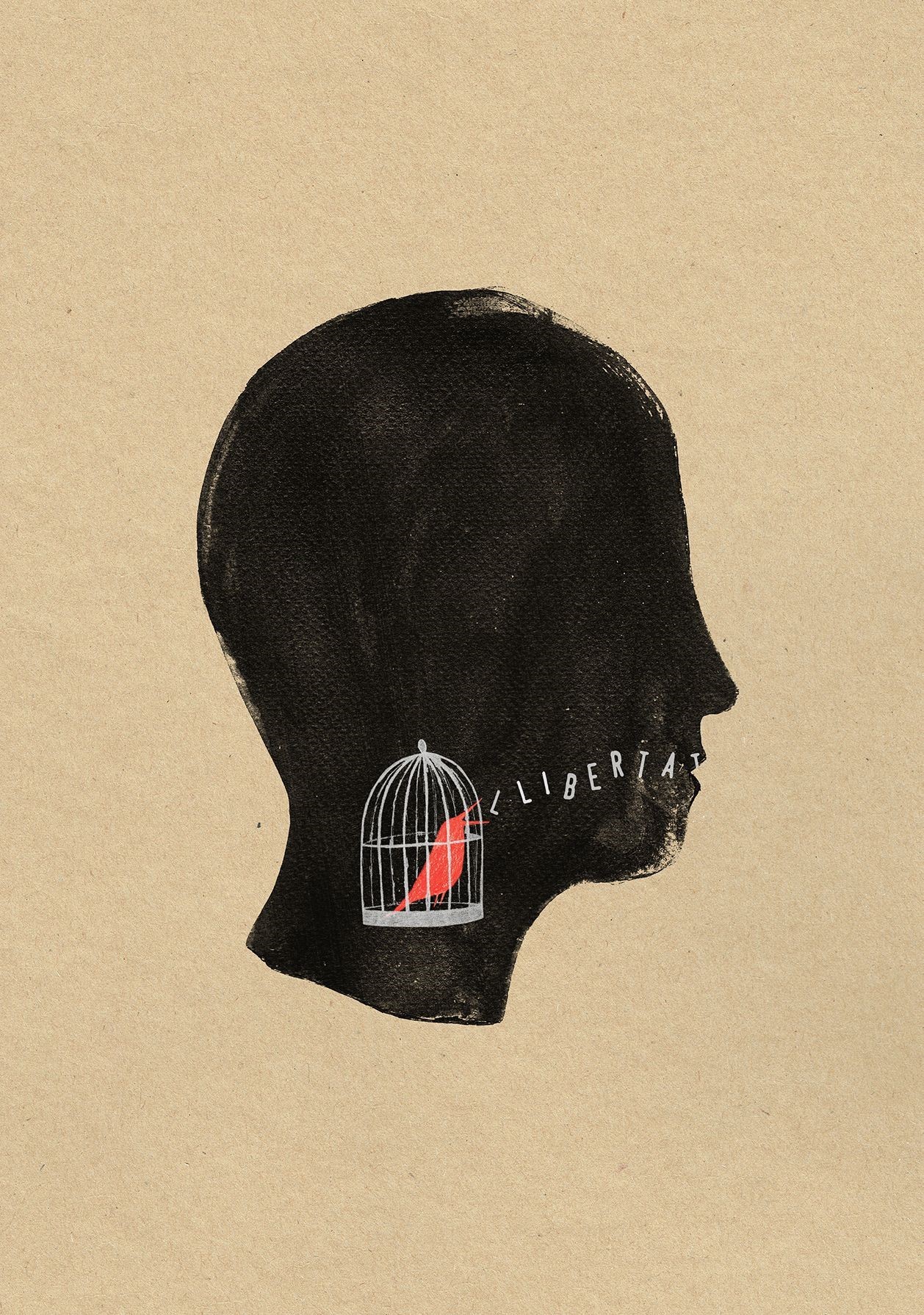Great question!
Basically, your freedom exists in your choosing from a set of acceptable behaviour choices provided to you by institutions of power, namely, the state or your culture. That being said, try walking into your neighbour’s house uninvited and pulling some ice cream out of the freezer, and you’ll find that cultural and societal norms (and home invasion laws) are very much in place.
Now, freedom of speech is a little more subtle and harder to navigate. It would seem as though cultural and societal norms put limits on what we can say, and those limits are becoming stricter and stricter. This power dynamic is illustrated most clearly by the relationship between authorities and individuals, and it is prevalent throughout our reality. French philosopher Michel Foucault described the relationship of power to freedom pretty well when he said that “freedom is the ontological condition of power”. He meant that power shows itself through the freedoms we experience. Basically, your freedom exists in your choosing from a set of acceptable behaviour choices provided to you by the powers that be, namely, the state or your culture. You can absolutely choose a behaviour outside of that set of choices, but you’ll be subject to punishment.
This may seem as though freedom of speech is illusory in a world that enforces cultural norms; however, placing restrictions on freedoms in one place opens up freedoms in another, and can even preserve the idea of freedom in general. By restricting my freedom to spread awful rumours about you, our laws and norms grant you the freedom to live your life without suffering my ill will. If we push this line of thinking to its extreme, we can suggest that complete freedom would eat itself up. If I were free to accuse you of being a liar without any proof, your ability to speak would be hindered because people wouldn’t believe you, and what’s the point of speaking if nobody listens? Because we’re tied together in societies and cultures, any action we take has an effect on someone else; what I want to do can limit what you want to do, so who gets to do it?
“Freedom isn’t free” was a saying used in America to politically justify wars earlier this century. If we examine it in the context of this question, we understand that by creating cultural and societal norms that limit freedom, we come out a little more free on the other side. It’s a give and take situation. However, there is a fine line between our institutions limiting freedom to preserve freedom and them limiting freedom to preserve ideology and their own power, so it is imperative that we keep our minds sharp, and continue to ask questions that keep the power accountable, such as this one.
What do you think? Is freedom of speech compatible with societal and cultural norms? Let us know in the comments.
And, as always, if you have a question for the Armchair Philosophers, don’t hesitate to get in touch. You could send us a message or fill in this form.
Be sure to check out our podcast!
If you like what we do, you can support us by buying us a coffee!
Image: Illustration by Alba Domingo (credit)
I received a BA in philosophy from the University of Texas at El Paso in 2008. After that, I spent roughly a decade traveling Europe and North America as a touring musician. Now I am working on a master’s in philosophy and philology at the University of Gothenburg in Sweden with the goal of teaching at the university level. Some specific areas of interest include medieval grammar and free will. Michel Foucault’s approach to the history of philosophy has been a huge influence on me, and his work on notions of the self and power structures bring history to the present.

